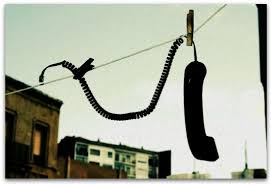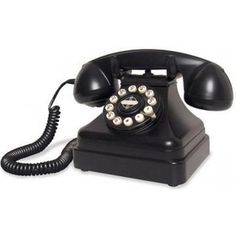94. Mother-Daughter Journey: Her a Monsa
Her a Monsa.
My grandparents lived in Brooklyn. My mother and father married and lived with my grandparents after the war. The War. There was a housing shortage and they managed to land an apartment in Stuyvesant Town, a Met Life development primarily for war veterans in Manhattan. It was still being built when my parents moved in and they paid a pittance for rent (in our present terms). First a one bedroom. Then a two bedroom.
Grandma couldn’t read or write; in Russia, girls were forbidden to be schooled. This was Kiev and the Tsar was in charge; it was the way things were.
When my grandfather died, my grandmother had no income other than what the four girls would send monthly. I see my mother sticking twenty-five dollars into an envelope and licking it shut, sending it off to Brooklyn.
Sometimes my grandma would visit and stay a few days. She’d stay in my room and line her slippers up by the bed. She had clear-pink-framed reading glasses that were assigned to tasks other than reading, though I tried to teach her when I was five, with my big Golden Dictionary. We’d sit on the couch with the feather cushion and I’d point to cute little 1940s drawings that illustrated words. I tried to teach my grandma, Sophie, how to read, I really did, but we never got far.
She was, however gifted, wise, Sophie in other matters: The Kitchen. I watched her make blintzes one day, and I swear it was the highlight of my childhood. She revealed the secrets of the process, and as a little girl I did my best to watch and internalize the making of the crepes, the onion and potato filling, the lightly frying, the combining, the final product with sour cream. My grandma was a blintze genius, a roast chicken prodigy, and a grower of a huge prickly spider plant that would attack you if you sat near it at the kitchen table. She was a painter of her furniture–white and gold. She had talents. She loved beauty.
My mother called her daily. But there were times my grandma would call my mother. They spoke Yiddish, my mother’s first language. And if my mother held the phone away from her ear, I could hear my grandma say something like: Her a Monsa.
Hair-a-MON-sa. The <r> at the end of hair was almost a light <d>. It is what they said when they wanted you to listen and listen good. “Listen to the story.”
Grandma, in her later, isolated years, would call and go into the monsa: There were motors running and they were ruining her sleep. The motor, the motor. My mother would look confused and would try to untangle the thoughts. I think it was likely that grandma had hardening of the arteries or something going on in her middle ear. The monsas continued and though I was just a kid I could feel in my gut that there was some kind of paranoia going on though I didn’t know the term. I could feel by watching my mother react that there was a sick feeling permeating our environment, a feeling of anxiety and fear. Her a monsa. I feel it to this day.

The big picture: I am talking about the tribe that women belong to: Its lineage travels from generation to generation. It is the tribe of caretakers and nurturers, those made responsible. Mothers, daughters, and all the role reversals in between.
It encompasses us all, all of us who hear the phone ring at 8:30 in the morning, when we haven’t fully gotten up and had coffee, because we try to sleep at night and it is hard; we are the worriers, we are those responsible, we are in charge, and we have become orphans.
Her a monsa.
The call was waiting for me when I emerged from the bathroom, the receiver was lying in wait. It was Sandra, the coordinator of the aides, with a another complaint about my mother, that she threw the aide out again. Mind you, in the last few weeks we’ve had some intense episodes with my mother throwing the aide out of the room, accusing her of stealing her things and taking her meds, tampering with her stuff. And yet Sandra, continued to send that aide back, knowing full well that it upset my mother to the core, knowing that my mother had called the police, knowing that my mother said time after time that this woman made her upset, that she would not allow her back in.
I listened to my mother’s story as I do, over and over, in her ranting agitation, something her doctor—who I finally got a hold of—calls “delirium.”
My mother reacts to a triggered event and whether it is a true event or not, her perception will always make it HER reality and that cannot be changed, fiddled with, picked apart rationally. It is said to be common among the elderly. I have learned to buy into the delirium, into the monsa, I have learned to humor her and yes her.
I called the top person of this agency and explained what I knew. I opted NOT to have any more business with Sandra, the coordinator again and asked that someone, someone who understood the elderly take over my mother’s case; Justina the supervisor, said she would do it. The top dog. She sent a different aide. (the aide that my mother loves had been working straight, two weeks of seven days each, and the agency made her take a day off. The aide in question was filling in. The one my mother never wanted to see again. Like my mother would forget this aide was seemingly THE one who could never be trusted. Oh, no, my mother never forgets!
But the monsas do not end there. The problems with the food continue. The meals are missing items. Or they are sent up late, or there is a spill on the tray, or a smear of someone else’s raspberry jam, that looks like blood and this is surely a hate crime because it was Passover.
Since January, it has been one problem, issue, monsa, after another. Each time something happens I try to put up my invisible shield and ward off the negativity, but those nasty rays still come at me.
I now understand that all the monsas my mother had to listen to are now mine to deal with. They travel through blood lines and demand to be heard. They are the stories of the elderly and the way they are thought of and treated. They are Universals.
That is why we all must … her a monsa.
This series starts here:
Part 1: And The Band Played On … a mother’s life, a daughter’s journey
The previous post is here
The following post is here




Sigh…
aah those beautiful delicate blinzes. my mom would festoon the furniture with clean dish towels and place a blinze on each while she made the pot cheese filling redolent of cinnamon that my brother and i would steal spoonfuls of before she even had a chance to fill the blinzes. she would fry the assembled blinzes in butter and they too were the lightest most ethereal yet rich and delish treat which we would also eat with cold sour cream which was a good contrast to the hot sweet blinze. no one made them like your grandma or my mom. sue, i guess we must take life with both the sweet and the sour.
((hugs))